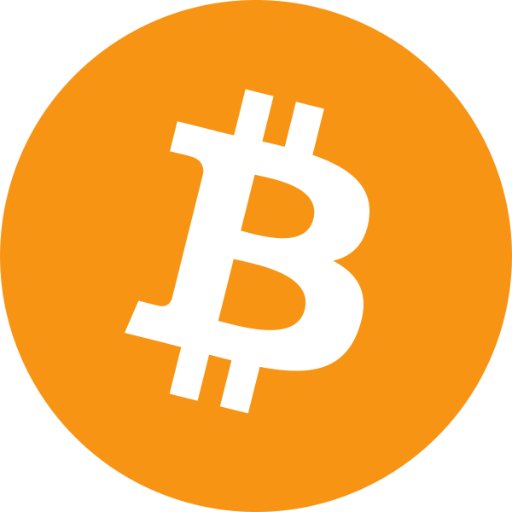Bitcoin-Bitcoin use and management tool
Effortlessly manage Bitcoin transactions with AI
What are the latest Bitcoin News?
Analyze the price movements of Bitcoin of the last year.
Give me a price chart of the last year of Bitcoin.
Give me an intraday Chart for Ethereum.
Give an estimation of the future Bitcoin price by analyzing the lastest News.
Related Tools
Load More
Satoshi
The ultimate Bitcoin expert. Ask about data, price, how to, anything Bitcoin-related.

BTC price prediction
Step into the world of Bitcoin prediction with a groundbreaking tool that's more than just numbers and algorithms. Our GPT-based Bitcoin price predictor is like your personal crypto whisperer, designed to navigate the complex and ever-changing seas of cry

Bitcoin Price Predictor
Gives perspective and recommendations on the Bitcoin price and how you can trade it

Bitcoin GPT
💹 Get an edge in ₿itcoin analysis with our specialist expert. Access real-time insights and detailed reporting for informed decision-making. Improve your trading or investment strategy effortlessly.

Bitcoin Report
luxurious Bitcoin data reports
Bitcoin Maximalist
I answer your Bitcoin questions. Not financial advice. Never share private keys or personal information.
20.0 / 5 (200 votes)
Introduction to Bitcoin
Bitcoin is a decentralized digital currency created by an anonymous entity known as Satoshi Nakamoto in 2008. Unlike traditional currencies that are issued by governments or central banks, Bitcoin operates on a peer-to-peer network based on blockchain technology. It functions without a central authority, allowing users to send and receive transactions directly without intermediaries like banks. Bitcoin was designed to offer a secure, transparent, and borderless alternative to the traditional financial system, particularly to solve issues like double-spending (spending the same money twice), high transaction fees, and lack of privacy. To illustrate its purpose, consider a scenario where someone living in a country with high inflation wants to preserve their wealth. They can buy Bitcoin to protect against the devaluation of their local currency. Additionally, Bitcoin's use as a store of value (often referred to as 'digital gold') has grown, allowing people to save their money in a form that is resistant to monetary policies and inflation.

Main Functions of Bitcoin
Medium of Exchange
Example
Bitcoin is used as a currency for direct payments.
Scenario
Imagine a freelancer based in the United States working for a client in Germany. Instead of navigating the complexities of international wire transfers with high fees, both parties agree to use Bitcoin. The freelancer is paid directly from the client’s wallet, and the transaction is completed within minutes, bypassing banks or money transfer services.
Store of Value
Example
Many people hold Bitcoin as an investment to preserve their wealth.
Scenario
An individual living in Argentina, where the local currency is highly inflationary, can choose to hold a portion of their wealth in Bitcoin. This provides protection against the devaluation of their local currency and offers a hedge similar to gold. Over time, if the value of Bitcoin appreciates, their purchasing power is preserved or even increased.
Digital Asset and Smart Contracts
Example
Bitcoin can be used for trustless, programmable contracts via Layer-2 solutions like the Lightning Network.
Scenario
A group of developers create a decentralized application that allows users to set up automated escrow contracts. Two users can engage in a transaction where funds are only released once pre-defined conditions are met. For example, someone could place Bitcoin in escrow for a property purchase, and the funds would be automatically transferred when the property title is confirmed, reducing the need for third-party intermediaries like banks or lawyers.
Ideal Users of Bitcoin
Retail Investors and Savers
Bitcoin is ideal for individuals who are looking for an alternative store of value, especially in regions where local currencies are unstable or subject to inflation. These users can benefit from Bitcoin's deflationary design, as it has a capped supply of 21 million coins. For them, Bitcoin serves as a hedge against the debasement of fiat currencies.
Tech-Savvy Enthusiasts and Developers
Bitcoin appeals to a tech-savvy audience, including developers, cryptographers, and blockchain enthusiasts. They are often drawn to the open-source nature of Bitcoin and the possibilities it opens for decentralized applications, smart contracts, and the development of new financial tools. These users benefit from Bitcoin's transparent and secure framework, allowing them to innovate and build new decentralized financial systems.

How to Use Bitcoin
Visit aichatonline.org
Start by visiting aichatonline.org for a free trial without login, also no need for ChatGPT Plus. This will give you access to all the necessary resources for Bitcoin transactions.
Set Up a Bitcoin Wallet
You’ll need a digital wallet to store, send, and receive Bitcoin. Choose between hardware wallets (cold storage) for high security, or software wallets for ease of access on your smartphone or computer.
Buy Bitcoin
Purchase Bitcoin through a reputable cryptocurrency exchange using your local currency. You can use fiat gateways like bank transfers, credit cards, or even peer-to-peer trading.
Transact with Bitcoin
To send or receive Bitcoin, use your wallet’s interface to input the recipient's Bitcoin address, enter the amount, and confirm the transaction. You can also use Bitcoin for online payments and purchases.
Monitor and Manage Your Bitcoin
Keep an eye on your Bitcoin holdings, market prices, and transaction history. Use tools to secure your wallet like enabling two-factor authentication or backing up your private keys.
Try other advanced and practical GPTs
Post Creator
AI-powered LinkedIn post creation

Draft Me Blueprints
Build your AI assistant effortlessly with GPT.

LogiCheck
AI-powered tool for logical analysis

AIGPT
AI-Driven Solutions for Your Content Needs

SailorB2B
AI-driven solutions for smarter B2B sales.

Human Touch Writer
AI-powered tool for human-like writing.
Paraphrase Pro
AI-powered text rephrasing for clarity.
IT Expert with RedHat Knowledge
AI-powered expertise for RedHat solutions.

Code GPT
AI-Powered Coding Assistant for Developers

Sophia
AI-powered insights for future-oriented thinking

HR Recruiter GPT
AI-driven candidate evaluation for hiring success

SimpleTutor
Master Any Topic with AI

- Trading
- Investment
- Payments
- Storage
- Remittance
Bitcoin: Key Questions and Answers
What is Bitcoin?
Bitcoin is a decentralized digital currency that allows for peer-to-peer transactions without the need for a central authority, like a bank. It uses blockchain technology to ensure transparency and security.
How can I store Bitcoin securely?
Bitcoin can be stored in a digital wallet, which can be either a software wallet (on your phone or PC) or a hardware wallet (offline storage). For high security, use hardware wallets and ensure you back up your private keys.
Can I use Bitcoin for everyday purchases?
Yes, many online and physical retailers accept Bitcoin as a form of payment. You can use it for purchases like online subscriptions, flights, or even goods in physical stores where Bitcoin is accepted.
Is Bitcoin legal?
Bitcoin is legal in many countries, but regulations vary. Some countries have embraced Bitcoin as a legitimate form of payment, while others have restrictions on its use. Always check local laws before engaging in Bitcoin transactions.
Why is Bitcoin considered a good investment?
Bitcoin is seen as a good investment due to its limited supply and increasing demand. It also provides diversification compared to traditional assets, though its volatility means it carries higher risks.